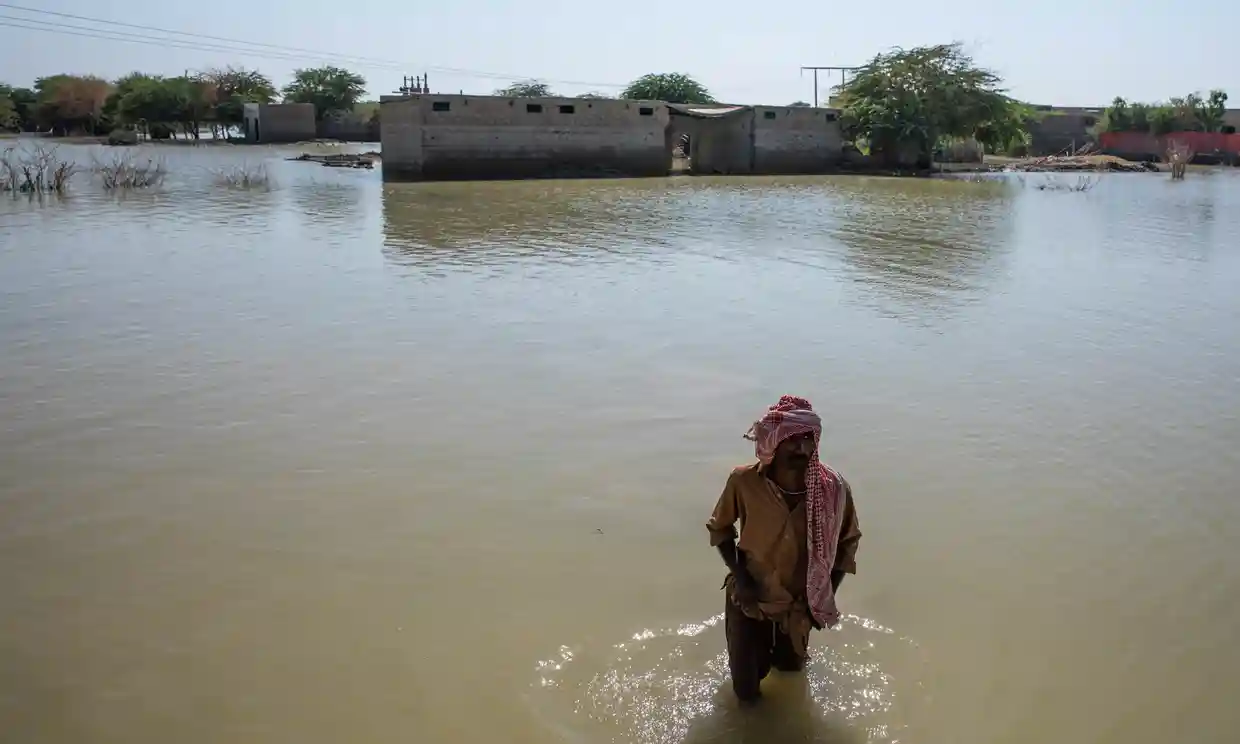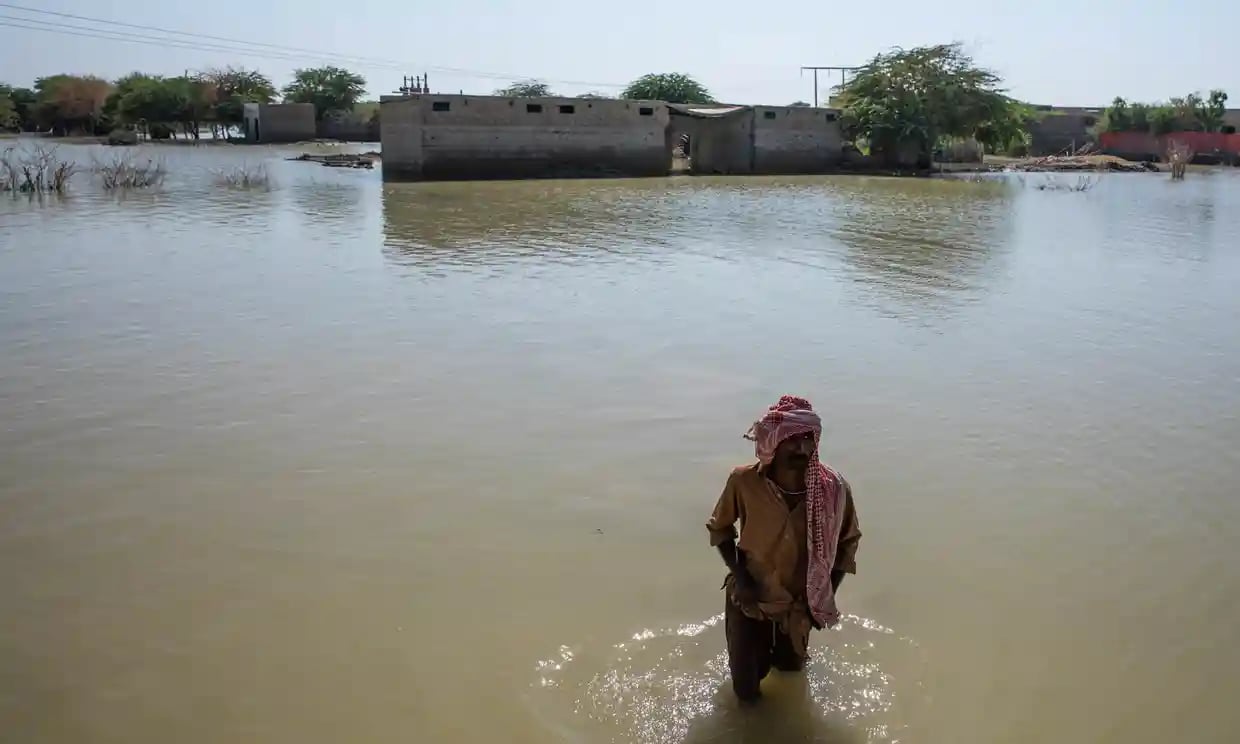The Necessity of the Commons
If we keep abusing nature it will collapse, taking us with it. We need a new mindset.
Christiana is a Founding Partner of Global Optimism, co-presenter of climate podcast, Outrage + Optimism, and co-author of The Future We Choose: The Stubborn Optimist's Guide to the Climate Crisis.
Published
2 November 2022

Originally published November 2, 2022 in The Guardian.
At Cop meetings in Egypt and Canada, humanity faces two doors. Door one leads to untold misery. We have no choice but to take door two.

Floodwaters in Johi, Pakistan, in October 2022. Photograph: Getty Images
For the last 50 years, an ill-fated paradigm has shaped western thought and action: the “tragedy of the commons”. This is a situation in which everyone operates according to their own self-interest and ultimately depletes our shared resources. Ever since the term was first coined in 1968, we have been acting it out to its fullest with devastating consequences for our land, water and atmosphere.
The climate and biodiversity crises have made it abundantly clear that we need to correct this fallacy and take care of the global commons. We all need clean air, fertile soil, thriving biodiversity and healthy oceans to survive and prosper. The temperature limits set by the Paris agreement will not be achieved without halting the conversion of intact ecosystems now, and regenerating what’s already been depleted.
Much of nature is on the brink of collapse because of rising CO2 emissions, industrial farming and pollution. That’s why this year at the twin Cops – the climate Cop in Egypt, and the biodiversity Cop in Canada – we need ambitious, joined-up action that delivers on promises to cut emissions and commits to stopping and reversing catastrophic biodiversity loss and species extinction.
It’s time to halt the tragedy, and focus on the necessity of the commons. Every drop of water we drink, every molecule of oxygen we breathe and every morsel of food we eat comes from nature. The evolution of the human race shows that we need nature much more than she needs us.
The major challenge in front of us is not technical or financial. What’s needed is a mindset shift. Yet changing mindsets is not mentioned in many of the excellent climate action and nature conservation roadmaps that leaders consult. It’s time we called that out. Sticking with the idea that the self-serving use of common resources is inevitable or irreversible, at a time in which deep, systemic collaboration is called for, will not deliver good results.
For us to achieve a decarbonised economy in which people and nature thrive, we need action at both the local and global levels. One company or one government alone cannot make the kind of difference we need; the transformations must be systemic and exponential, and delivered with justice in mind.
It’s only by changing the way we think, from competitive towards collaborative, that we will be able to work together and accelerate these efforts. This radical mindset shift would open up our horizons and allow us to seek others in our sectors, cities, neighbourhoods and regions who we can collaborate with.
I saw radical collaboration in the run-up to the Paris agreement, when nations came together to chart one direction of travel for the global economy. And I am seeing how radical collaboration has emerged among the businesses and institutions that are signatories of The Climate Pledge, founded in 2019. For example, some of the 375 signatories who would traditionally be seen as competitors have decided to form a buying alliance to make batteries for zero emissions vehicles cheaper and faster to produce.
A great diversity of collaborative alliances are emerging in many sectors. They are as difficult to negotiate as they are exhilarating, and they generate community spirit and the kind of “can do” attitude that we so desperately need right now.
The choice we face in the upcoming Cops can be described as a choice between two doors. If we continue to compete with each other, if we continue to pollute the ocean, air and land the way that we are right now, we will have knowingly chosen this first door. By the end of this decade, we will be on the way to a world of accelerating destruction and untold human misery. Once we go through that door, it will be very difficult to turn back.
If we instead choose radical collaboration, focusing on the necessity of the commons, and pursue the many different ways we have to swiftly decarbonise our economy, then we are choosing door number two. By the end of this decade, we will have opened a door to a future world that is healthier, more just, more prosperous, and certainly safer than the one we have now. Door number two doesn’t just avoid the worst of the climate and biodiversity crises, it takes us into a much better world. But we have to intentionally choose this door, and do so on time.
Radical collaboration is hard. It requires us to adopt a different mindset; it requires us to listen to, share and work with people who we may have previously seen as competitors. Radical collaboration pushes past the status quo and shakes up power dynamics. In the face of approaching climate tipping points and the collapse of the living world as we know it, we cannot afford to continue without it.







